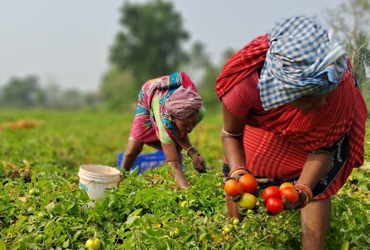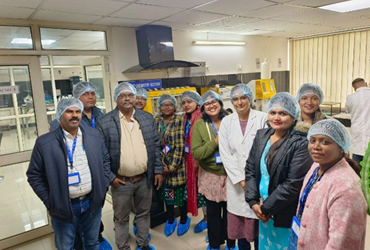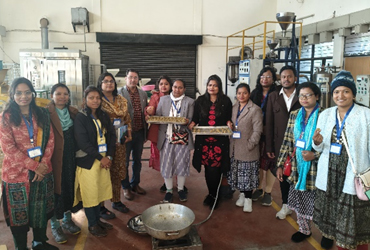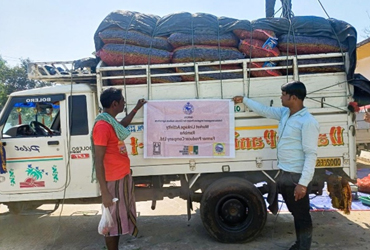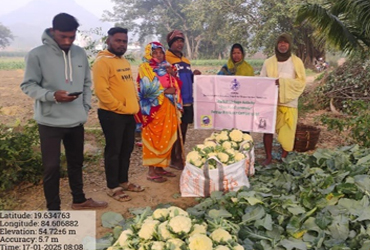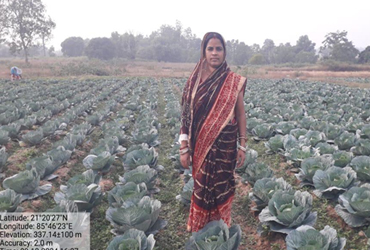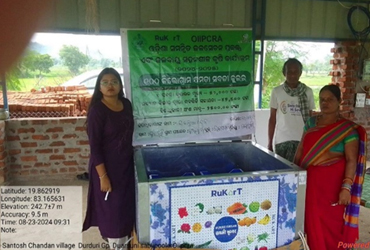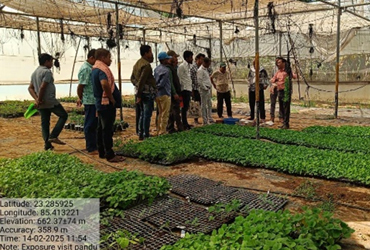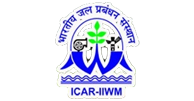OIIPCRA is a unique convergence project for augmenting the capacity and income of the farmers in the project area. The project cover 396 GPs in 98 Blocks of 15 Districts. The proposed project focus on small and marginal farmers, Water Users Associations (WUA / PP), Farmer Producer Organizations (FPO / FPC) and other agricultural entrepreneurs, including women and other vulnerable groups. The project has focuses on Climate-Smart Intensification and Diversification of Production, Improving access to Irrigation and Water Productivity, Institutional Capacity Strengthening.
In horticulture, wide range of activities are being taken under OIIPCRA project such as Hybrid Vegetable Cultivation, establishment of Mushroom Production Units, Vermicompost Units, Functional Pack Houses, Sabji Coolers, Cold Rooms, Onion Storage Structures, Preservation Units etc.
A brief highlight of interventions under OIIPCRA for the year 2024-25 is provided below.
- Hybrid vegetable cultivation encourages crop diversification and the use of climate-resilient seed varieties, including bitter gourd, cucumber, tomato, okra, chilli, cauliflower, cabbage, radish, brinjal, ridge gourd, and pumpkin, based on farmer preferences across 5,000 hectares in MIP areas. Additionally, with support from a Support Organization, crops like chilli, tomato, cabbage, and cauliflower are marketed collectively through FPOs in the MIP areas.
- Establishment of 257 vermicompost units will improve soil water retention and nutrient content, reducing dependence on chemical fertilizers and support both individual farmers and farmer groups.
- Till now established 53 functional pack housefacilities are being utilized for processing of vegetables prior to distribution to market.
- A zero-energy cool chamber (Sabji Cooler) preserves fruits and vegetables by maintaining low temperatures and high humidity without electricity, reducing post-harvest losses and enhancing farm income. Till date developed installed 56 numbers of cool chamber are supporting individual farmers to sell their produce locally.
- To avoid post-harvest losses, better realization of market prices till now 4 numbers of cold room have been established. Further high investment infrastructures such as mushroom spawn units, prefabricated onion storage structures, green house structures and refrigerated vans are being under process.
- For value addition through drying, canning, freezing, or other preservation methods 44 preservation units and 79 low-cost mushroom production units - an affordable and efficient setup for cultivating mushrooms, particularly beneficial for small and marginal farmers have been established till date.
- A total of 7,200 farmers have been trained and participated in exposure visits to various districts and states. The training covered post-harvest handling of horticultural produce, infrastructure management, nursery farming, plant grafting and irrigation techniques to address climate change.
- A Training of Trainers (ToT) program was conducted at ICAR-CIPHET (Centre for Post-Harvest Engineering and Technology),Ludhiana for 20 officials, focusing on processing operations for horticultural crops, including both fruits and vegetables. The program combined practical and theoretical sessions, along with field visits to processing industries, incubation centers, and agro-processing clusters for hands-on experience in the food processing industry. The trained officials will, in turn, impart training to Horticulture Extension Workers (HEWs) in their respective districts, enabling them to replicate technological advancements, value addition processes, and best practices in horticultural crop processing for the benefit of farmers.


